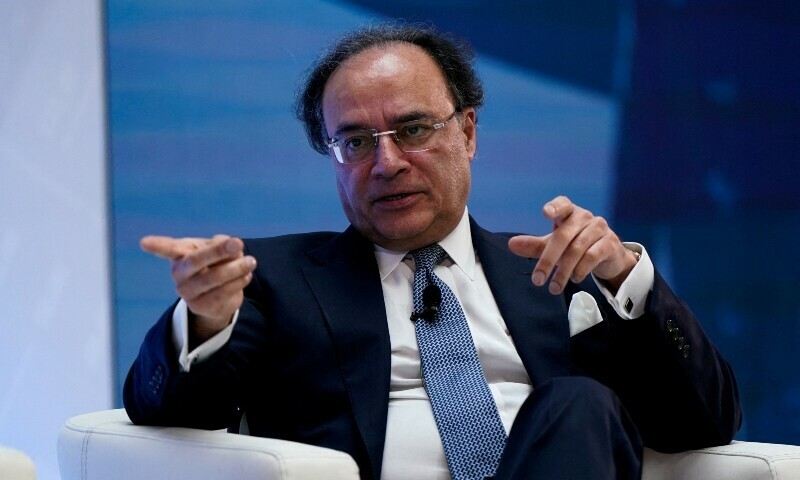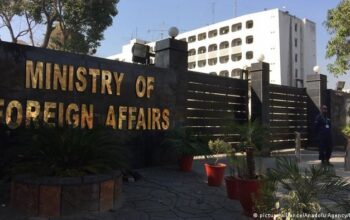By Staff Reporter
ISLAMABAD: The latest budget is a reckless bet that the government can muscle through enforcement measures no one believes are feasible. Finance Minister Muhammad Aurangzeb has staked the country’s fiscal future on a Rs14.1 trillion revenue target, a 19% jump from Rs11.9 trillion, underpinned by a crackdown on tax dodgers and IMF-mandated austerity. The problem? This plan assumes a level of political backbone and economic resilience that Islamabad has rarely shown. It’s less a strategy than a prayer, and the odds are stacked against it.
The numbers tell a grim story. The IMF, which has Pakistan’s fiscal leash firmly in hand, projects 3.6% GDP growth for FY26, undercutting Islamabad’s rosy 4.2% forecast. With large industries shrinking, agriculture faltering, and public spending gutted to appease international lenders, the economy isn’t poised for a revenue miracle. A tax-to-GDP ratio languishing around 10%, among the region’s lowest, exposes the scale of the challenge. Yet Aurangzeb insists on draconian measures: barring non-filers from buying property or securities and shuttering unregistered businesses. Bold? Sure. Realistic? Hardly.
Politically, it’s a non-starter. The minister’s threat, pass these clauses or face Rs400-500 billion in extra taxes, sounds tough, but it’s a bluff his own coalition might not buy. The National Assembly’s finance committee is already bristling, and lawmakers know the public won’t stomach an FBR empowered to play economic cop.
“Legal backing will be critical to institutionalise compliance and sustaining revenue growth,” Aurangzeb said at his post-budget press conference, a plea tinged with urgency. The minister didn’t mince words about the stakes, through his pitch reveals the fragile tightrope the country’s economy is walking.
“I now request my colleagues in both houses of parliament to get the enabling clauses for enforcement measures passed, otherwise we would have to take Rs400-500bn additional tax measures,” he said, a not-so-subtle nudge to lawmakers—and perhaps a sign of unease within his own Pakistan Muslim League-Nawaz (PML-N) and its coalition allies.
The IMF looms large over this drama. Finance Secretary Imdadullah Bosal put it plainly: “These numbers are locked with the IMF.” The government’s revenue blueprint, Rs700 billion in extra taxes beyond a projected 12% organic bump, leans heavily on enforcement (Rs389 billion) over other tax tweaks (Rs312 billion). But there’s a wrinkle: a last-minute decision to bump government salaries by 10% instead of 6% adds Rs28 billion to the tab, a gap plugged by rejiggering income tax rates for salaried workers. The first slab, covering incomes from Rs600,000 to Rs1.2 million, now faces a 2.5% rate instead of the 1% initially floated, a small but telling shift.
The country’s sprawling informal economy and entrenched tax evasion culture aren’t hurdles, they’re brick walls. Past efforts to strong-arm compliance have floundered; this time won’t be different. Aurangzeb is betting on enforcement as the game-changer. “During the current year, we have demonstrated practically that we can deliver,” he said, pointing to Rs400 billion clawed back through tough tax recovery this year. “We now have the trust and credibility.” It’s a bold claim, aimed at both lawmakers and international skeptics who’ve long questioned authorities’ tax muscle. Yet, he knows the clock is ticking, without legal teeth, that momentum could stall, forcing the tax hike he’s desperate to avoid.
For now, the ball’s with parliament. Aurangzeb’s message is stark: back the FBR’s new powers to rake in Rs389 billion, or brace for a tax hit to make up the difference. The stakes couldn’t be higher. If this gamble pays off, the country might finally claw its way toward fiscal health, loosening the IMF’s grip. But if it fails, the fallout could be brutal: more taxes, slower growth, and another bailout plea.
Copyright © 2021 Independent Pakistan | All rights reserved




